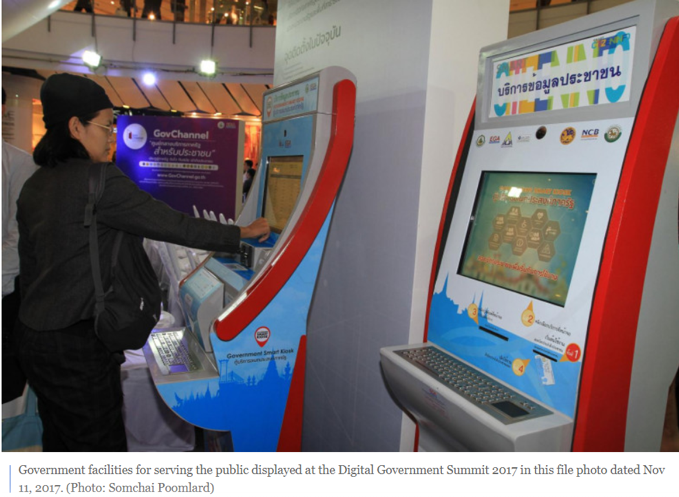Thailand was an early adopter of the internet for government services, creating an e-government system as early as 1997. But political turmoil in 2006 caused the kingdom to fall behind. When the United Nations ranked countries by e-government in 2012, Thailand was a dismal 92nd out of 193.
Things improved with the establishment of a Digital Government Development Agency in 2018. The Covid pandemic’s necessity for social distancing and lockdown accelerated this transformation. Government departments that invested in digital teams, platforms, and ways of working did better than those that did not. The overall results were encouraging. In the 2022 rankings, Thailand is a respectable 55th, about the same as Malaysia and slightly behind China.
Thailand will successfully manage the transition to digital governance if it takes the time now to make sure it is moving in the right direction. Moving from paper applications to electronic forms was easy. Ensuring that digital governance continues to serve the interests of the people will be a greater challenge.
The original article was posted at Bangkok Post.
The Boston Global Forum (BGF), in collaboration with the United Nations Centennial Initiative, released a major work entitled Remaking the World – Toward an Age of Global Enlightenment. More than twenty distinguished leaders, scholars, analysts, and thinkers put forth unprecedented approaches to the challenges before us. These include President of the European Commission Ursula von der Leyen, Governor Michael Dukakis, Father of Internet Vint Cerf, Former Secretary of Defense Ash Carter, Harvard University Professors Joseph Nye and Thomas Patterson, MIT Professors Nazli Choucri and Alex ‘Sandy’ Pentland, and Vice President of European Parliament Eva Kaili. The BGF introduced core concepts shaping pathbreaking international initiatives, notably, the Social Contract for the AI Age, an AI International Accord, the Global Alliance for Digital Governance, the AI World Society (AIWS) Ecosystem, and AIWS City.










